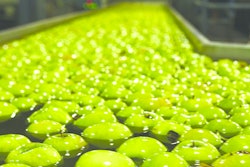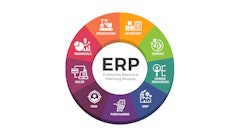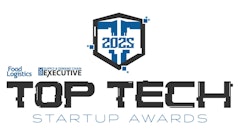In a boost to animal welfare activists looking to get livestock out of cramped cages, Burger King will be the first major U.S. fast-food chain to give all of its chickens and pigs some room to roam.
The world's second-biggest burger chain pledged that all of its eggs and pork will come from cage-free chickens and pigs by 2017, hoping to satisfy rising consumer demand for humanely produced fare and increase its sales in the process.
Other companies have made similar but less broad announcements this year, part of an industry-wide shift to consider animal welfare when buying food supplies.
"Even if you're buying a burger, you want to buy it from someone you like and respect," said food industry analyst Phil Lempert, who writes a daily industry newsletter. "It's proven that consumers are willing to pay a little bit more for fairness, whether it's to humans or animals."
Conventionally raised eggs come from hens confined in "battery cages," which give them roughly the same space as a sheet of standard notebook paper. Most pork comes from sows confined during their four-month pregnancies in narrow crates.
The hens would still be housed in a barn, but they have room to move and perches and nesting boxes. Sows are also held indoors, but they would not be confined in the cramped crates while they are pregnant.
Egg and pork producers have argued that easing confinement standards for animals raises production costs and makes those who adjust their practices less competitive.
Animal welfare groups applauded Burger King's decision.
"So many tens of thousands of animals will now be in better living conditions," said Wayne Pacelle, president of the Humane Society of the United States, which has been pushing Burger King and other companies to adopt similar policies. "Numerically, this is significant because Burger King is such a big purchaser of these products."
Burger King uses hundreds of millions of eggs and tens of millions of pounds of pork annually, and its decision could be a game-changing move in the supply business as a huge new market opens up for humanely raised food animals.
Already 9 percent of the company's eggs and 20 percent of the pork served at its 7,200 restaurants are cage-free.
The Miami-based company has been steadily increasing its use of the eggs and pork as the industry has become better able to meet demand, said Jonathan Fitzpatrick, chief brand and operations officer. Fitzpatrick said the decision is part of the company's social responsibility policy.
In recent months, other companies have announced similar policies.
Chipotle, with just over 1,200 restaurants, made a splash during the Grammy Awards in February with its viral commercial detailing the company's commitment to humane treatment of animals and healthy food. After the commercial created so much buzz, other companies were quick to announce new policies, Lempert said.
"Everyone wanted to say: 'We all have good intentions,'" he said.
So far this year, McDonalds and Wendy's said they asked their pork suppliers to outline plans for the elimination of gestation crates, but didn't set a timetable. Also, Smithfield Farms and Hormel committed to ending the use of crates by 2017.
Wal-Mart and Costco have shifted their private-label eggs to 100 percent cage-free.
Unilever, which uses 350 million eggs a year in its Hellmann's mayonnaise brand, is switching to 100 percent cage-free. Others, such as chain restaurants Sonic, Subway and Ruby Tuesday and manufacturers such as Kraft Food and ConAgra Foods, are incorporating some percentage of cage-free eggs in their products.
"This is an issue that just four to five months ago was not on the food industry's radar," said Paul Shapiro, the Humane Society's vice president for farm animal protection. "Now it's firmly cemented into the mainstream in a way that I think few people would have imagined."
But the United States is still far behind the European Union, where, for example, 100 percent of the eggs that McDonald's uses are from free-range chickens, which are allowed to roam outside. Laws governing farm animal welfare are stricter in the EU and give the animals more freedom to roam.
The egg industry's largest trade association, the United Egg Producers, has teamed up with the Humane Society in seeking federal legislation this year that would double the size of the battery cages in which 90 percent of the nation's 280 million laying hens are confined. And last month, the pork industry's trade magazine noted that public opinion is evolving and "on the issue of gestation-sow stalls, at least, it's increasingly apparent that you will lose the battle."
HSUS has been pushing for more than a decade for large-scale purchasers of animal products to ensure that they are raised humanely. The organization owns stock in 52 companies so that it can attend shareholder meetings and submit proposals for improved animal welfare policy. It also has used undercover operations to show the conditions some food animals endure.
In 2007, Burger King became the first major fast-food chain to incorporate animal welfare into its purchasing policies when it began getting at least some of its pork and eggs from cage-free suppliers.
While some companies responded to consumer demand by incorporating some cage-free eggs into their orders, the landslide passage in 2008 of California's Proposition 2, which will ban chicken cages and gestation crates by 2015, caused buyers and suppliers nationwide to take notice.
Since then, studies have shown that shoppers are willing to pay more for products they believe are produced to higher animal protection standards. Some estimates show raising hens cage-free adds 1 cent to the cost of each egg. It's unclear how much more it will cost to raise pork outside gestation cages.
"Our attitude is our producers believe in consumer choice and, if that's what their consumers want to buy, they'll produce cage-free eggs for the marketplace provided the customer is willing to pay the additional cost," said Gene Gregory, president of the United Egg Producers.
Source: Associated Press Release


















